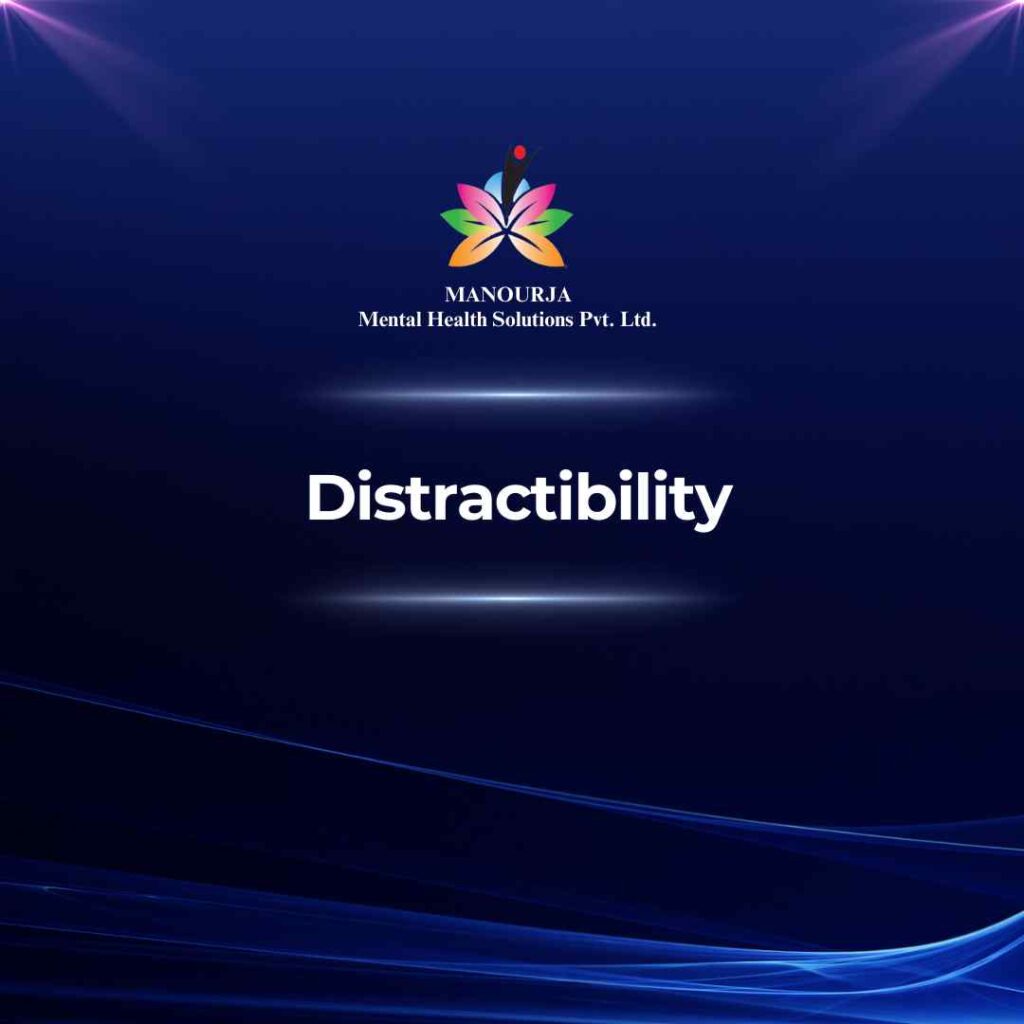Distractibility

Distractibility refers to an individual’s difficulty in maintaining attention or focus on a task or activity, often being easily sidetracked by irrelevant stimuli. This can lead to a significant impact on daily functioning, productivity, and the ability to complete tasks.
Distractibility as a Sign and Symptom of Mental Illness
Distractibility is a common symptom in various mental health conditions. When someone is experiencing distractibility, they may:
- Have Trouble Staying Focused: They struggle to maintain attention on tasks, conversations, or activities.
- Easily Diverted: They can be easily sidetracked by external stimuli (noises, movements) or internal thoughts.
- Incomplete Tasks: They may start many tasks but find it difficult to complete them due to their attention constantly shifting.
- Impaired Daily Functioning: This can affect their work, academic performance, and personal life.
Mental Illnesses Where Distractibility is Present
Distractibility can be a symptom in several mental health disorders. Here are some key conditions where distractibility might occur:
- Attention-Deficit/Hyperactivity Disorder (ADHD)
ADHD is characterized by persistent patterns of inattention, hyperactivity, and impulsivity. Distractibility is a core symptom of ADHD, making it hard for individuals to focus on tasks and follow through with them.
During manic or hypomanic episodes of Bipolar Disorder, individuals often experience increased distractibility, along with rapid thoughts and speech. This can significantly impair their ability to concentrate on one thing at a time.
In Major Depressive Disorder and other depressive conditions, distractibility can occur due to the cognitive impairment associated with depression. Individuals may find it difficult to concentrate and may be easily distracted by their negative thoughts.
Anxiety Disorders, such as Generalized Anxiety Disorder (GAD) and Panic Disorder, can cause distractibility due to the excessive worry and tension that preoccupy the mind, making it hard to focus on daily tasks.
In Schizophrenia, distractibility can result from the cognitive deficits and thought disturbances associated with the disorder. Hallucinations and delusions can further impair attention and focus.
Individuals with PTSD may experience distractibility due to hyperarousal and intrusive memories of traumatic events. This can disrupt their concentration and ability to stay on task.
In OCD, distractibility can occur because of intrusive obsessive thoughts that interrupt and dominate the person’s focus, making it difficult to concentrate on other tasks.
Substance Use Disorders, particularly involving stimulants or depressants, can lead to distractibility both during substance use and withdrawal phases. The altered state of mind caused by substances can impair concentration.
Individuals with ASD may experience distractibility due to sensory sensitivities and the challenges in focusing on tasks that are not of specific interest to them.
Conclusion
Distractibility is a prevalent symptom that can be observed in various mental health conditions. It significantly impacts an individual’s ability to function effectively in daily life. Recognizing distractibility as a symptom is crucial for the accurate diagnosis and treatment of the underlying mental health disorders.
At MANOURJA, we believe in the transformative power of counseling. Our experienced therapists offer a safe and supportive space where you can explore your thoughts, emotions, and challenges. Through personalized counselling sessions, we’ll work together to develop coping strategies, build resilience, and achieve lasting positive change. Discover the path to a healthier, happier you with MANOURJA counselling services.
MANOURJA Rehabilitation Services
At MANOURJA, we’re dedicated to helping you in rebuild your life, after difficult times. Our rehabilitation services focus on understanding what you need to move forward, whether you’re recovering from addiction, trauma, or any psychological – social challenges. We create personalized plans, that are all about helping you, regain your strength and find hope again. With a caring team by your side, you’ll have the support to make real progress and take steps toward a brighter, healthier future.
